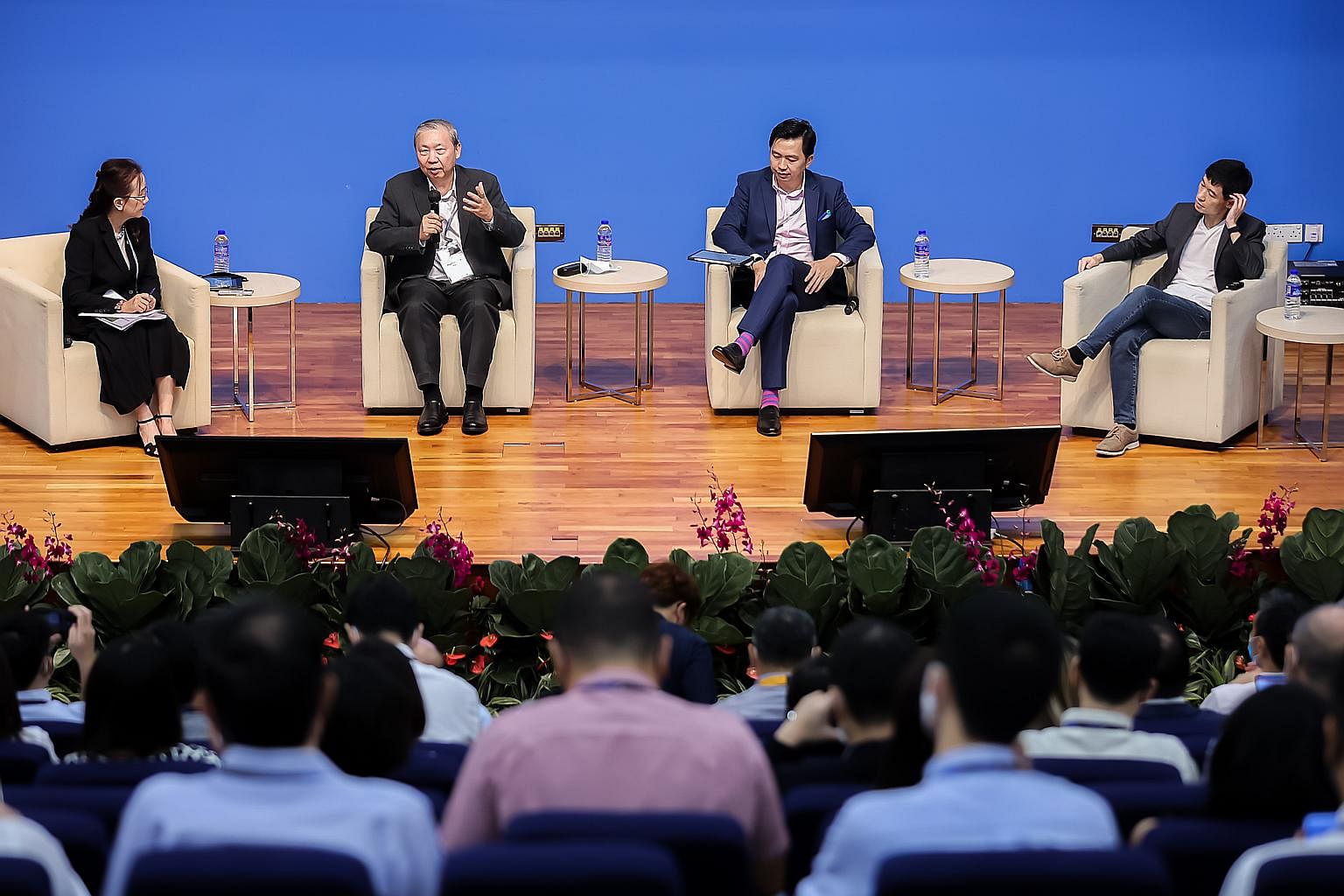Firms need to invest in skills development to retain key talent, says panellist at NUS lifelong learning event
Sign up now: Get ST's newsletters delivered to your inbox

(From left) Professor Susanna Leong, NUS vice-provost, with the panellists, Professor Fong Kok Yong, SingHealth deputy group CEO (medical and clinical services); Mr Dean Tong, UOB managing director and head of group human resources; and Mr Frank Koo, LinkedIn head of Asia (talent and learning solutions).
ST PHOTO: GAVIN FOO
Nisha Rahim
Follow topic:
SINGAPORE - Businesses will need to invest in skills development and cultivate a continuous learning culture to retain key talent.
They must also adapt to technological changes, said UOB managing director and head of group human resources Dean Tong.
For the financial services sector, that means keeping pace with things such as the growth of artificial intelligence and blockchain automation, he added.
The sector has also seen an increase in demand for specific skill sets like data analytics, he said during a panel discussion at the inaugural National University of Singapore (NUS) Lifelong Learning Festival on Tuesday (July 19).
Mr Tong said: "How do we survive and thrive in this new environment? It translates into our ability to attract talent and reskill our people with the capabilities required for the future."
UOB has also developed courses to help employees embrace continuous learning and learn in-demand skills such as project management.
He added: "These are high-demand areas within the firm that we find hard to hire from tech markets such as data analytics and project management."
The one-day NUS event was held at the Shaw Foundation Alumni House in Kent Ridge.
The panel discussion also featured Professor Fong Kok Yong, deputy group chief executive of SingHealth for medical and clinical services, and Mr Frank Koo, LinkedIn's head of talent and learning solutions in Asia.
The discussion also touched on what organisations must do to help workers meet the future demands of the labour market.
In healthcare, Prof Fong said keeping up with technological developments is imperative, but soft skills, such as good communication with patients, are also important.
Mr Koo also raised how employees' expectations have shifted, and how the lack of career progression or opportunities for growth are top reasons why employees leave their companies.
He said organisations that can provide opportunities for growth and development are attracting talents.
"Based on a survey we did last year, there's a lot more investment last year on upskilling and reskilling of talents than before," he said.
Mr Koo added that 94 per cent of employees said in the survey they would consider staying longer in an organisation that provides them with development opportunities.

